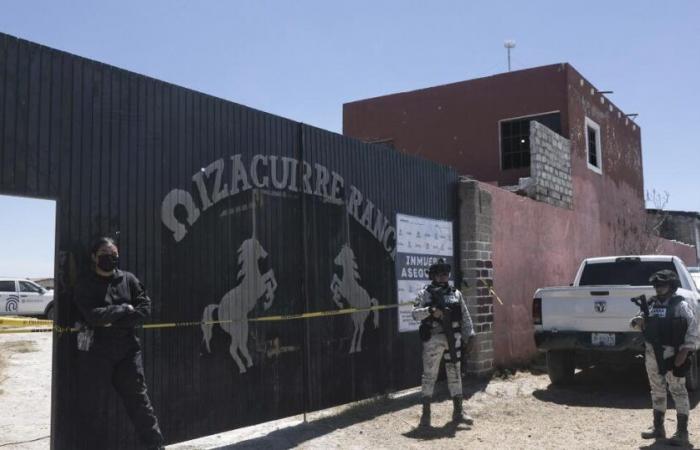The Mexican authorities arrested a mayor of a town in the west of Mexico where a farm used by the powerful Jalisco Nueva Generación (CJNG) cartel (CJNG) was discovered for the recruitment and training of its members, federal security cabinet reported Sunday.
José Murguía Santiago, mayor of the municipality of Teuchitlán, state of Jalisco, was arrested on Saturday by elements of the Attorney General’s Office for his alleged relationship with the case of the “Rancho Izaguirre”, confirmed a person close to the security cabinet who spoke on condition of anonymity because he is not authorized to declare on the case.
The Prosecutor’s Office could impute Murguía Santiago of the alleged crimes of organized crime and omission, among others. The detainee was transferred on Saturday to the Penitentiary Complex of Puente Grande of the State of Jalisco.
Murguía Santiago, a member of the Minority Party Citizen Movement, is the largest rank officer arrested to date for the controversial case of the “Rancho Izaguirre” where the group of search engines of missing people Jalisco seekers of Jalisco denounced in March in March the discovery of numerous calcined bone remains and hundreds of clothing. The governor of Jalisco, Pablo Lemus – also a member of the Citizen Movement_, so far he has not spoken about the arrest of Murguía Santiago.
The mayor’s capture is given a few days after Federal Attorney Alejandro Gertz Manero reported that since 2021 the Jalisco State human Commission reported to the authorities of the municipality of Teuchitlán the existence of the farm that was managed by the CJNG, which was appointed in February by the United States as a “terrorist organization” along with five other Mexican cartels.
In the case, 15 people have been arrested, including three police officers from the municipality of Tala – Vecino to Teuchitlán – and an CJNG operator who was dedicated to recruiting possible members who were sent to the states of Zacatecas and Jalisco.
Gertz Manero said last Tuesday at a press conference that there were 14 processes for organized crime and for the disappearance of people linked to the homicide of the person who found himself on the property, and added that arrest warrants would be executed against local authorities involved.
The prosecutor ruled out the existence of cremation centers on the property, and of complete or partial bones, which was objected by Jalisco seekers who denounced the presence in the place of numerous calcined bone remains.
Despite the complaint of the State Human Rights Commission and the intervention of the property by the National Guard and the State Prosecutor’s Office last September, for several months the investigations of the case were not advanced.
It was not until March 5 when the members of the Guerreros Searchers collective of Jalisco denounced the horrendous finding that the investigations of the case were resumed, which unleashed a strong controversy because it revealed the failures and omissions of the authorities to advance the investigations, especially in the processes of disappearances.
Jalisco’s Guerrero Guerrero Collective said last week that the “Rancho Izaguirre” recovered “17 lots of calcined bone human remains” that were at the Jalisco Institute of Forensic Sciences, and that “contradict the version of the Attorney General.”
The Jalisco Prosecutor’s Office published on its website the records and photographs of 1,844 clothing and personal objects found in the “Rancho Izaguirre” so that people looking for their missing relatives can determine if they belong to their loved ones.
Mexico has faced for decades the serious problem of disappearances, which according to official figures already reach 127,913.






